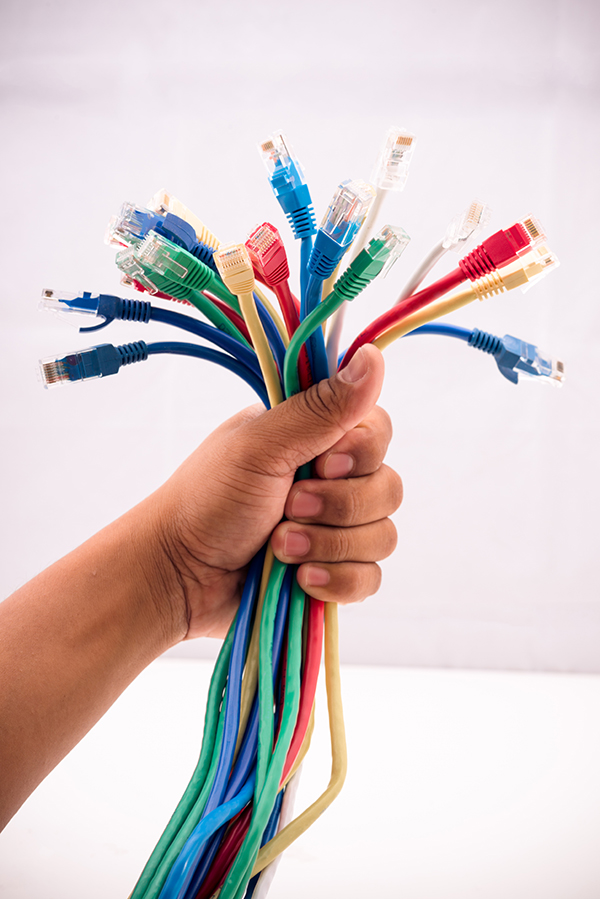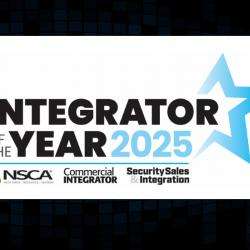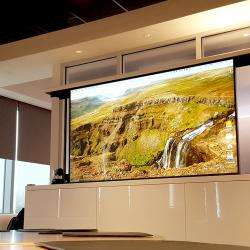6 Tips for Planning Internet at Your Event

It’s Friday night and you’ve decided to eat at a pleasant looking restaurant. You order food, and after putting in the order your server comes back to the table and asks if you’d like to continue to use chairs as well. She lets you know the restaurant is pleased to offer chairs at $.16 per pound of occupant. Crazy right? Sure you can eat dinner without a chair, but obviously it’s not the experience you’d like. But you already picked a place and ordered, changing restaurants now is going to be a hassle…
It’s not unusual for things to go this way when ordering meeting internet service at many venues. Not only is the location already selected, the client has signed a contract, and only then is there a discussion about how much internet will cost. Sure, you can get by without access or use a cellular hotspot, but it’s less than ideal. I worked several years in full service hotels for the on-site audio visual companies, and want to share some tips for getting the best value on internet service.
1. Recognize the Value of Internet Service
First off, let’s clarify that internet service for your meeting (more so than guest rooms) has real value. We talk about getting free wi-fi at Starbucks, but if the wi-fi doesn’t work the worst case scenario is you go to Panera and continue browsing Facebook. In a professional setting, reliable, high speed internet is mission critical. What are you going to do if your presenter’s online demo doesn’t work, or attendees can’t download your organization’s app? The labor and infrastructure that support internet aren’t free, so paying a reasonable price for this service should be expected.
2. Test Coverage When Conducting Site Visits
When conducting site visits, use a tablet or laptop to look at the signal strength of the venue’s wireless network. Can you pick it up in the corners of the room? Can you pick it up in that one room that’s separate from the rest of the meeting rooms? Use an online speed test to measure how fast the connection is. (Google “speed test” for a ton of options) The speed test measures bandwidth, which I’ll talk about in a second.
3. Ask for Pricing at Each Venue Before Signing a Contract
Avoid surprises. Ask for the costs in a written form - it doesn't necessarily have to be a formal quote, but should be provided to you in writing. Make sure you understand the information provided and ask for clarification if necessary. It helps to ask if there will be other groups using the same network since that will reduce speed available for you. You can also ask if it’s possible to get “dedicated bandwidth” (ie. capacity set aside just for your group) although that will have a higher price.
 4. Calculate How Much Bandwidth You Need
4. Calculate How Much Bandwidth You Need
Look at this CIC bandwidth calculator and estimate how much bandwidth you’ll need. Some venues provide internet pricing per person, per device, or a flat rate for the entire group. Bandwidth is the preferred measurement. Imagine a pipe with water flowing through it. Bandwidth describes how big that pipe is. Suppose you have 100 attendees and you get a per person price. That won’t give you an accurate picture of usage since your 100 attendees could be sharing from one straw or drinking from a fire hose.
5. Negotiate the Pricing You Received
(Note: If you’re completely satisfied with the price you received, please skip this step.)
When I write an audio visual quote and include a technician for 10 hours, I know how much that technician is going to cost internally in hourly pay, health benefits, training etc. There’s a real cost attached. With venues, there is a real cost associated with the bandwidth you’re purchasing, but the people you’re talking with likely don’t know what it is.
When I worked for the on-site AV companies, there was a list price that we were supposed to charge for Internet. But, there was also the price we actually charged, because the hotel partner was offering a lower rate before we started handling internet, or because a client pushed back on the venue sales person, or pushed back on us, and we wanted to keep the client happy. In my experience, the AV partner doesn’t know how much bandwidth costs the venue, and if they do, that cost isn’t on their balance sheet. So internet charges become an area where the AV company is willing to negotiate. This is why after you’re locked into a hotel contract, you may encounter AV partners offering a big “discount” on internet if you agree to use them for the rest of your AV needs.
Compare the prices you received at previous meetings, compare between other locations you’re considering, and then negotiate for the pricing you would like before signing a contract. (Keeping in mind the earlier point about paying a reasonable rate. “Free” isn’t realistic for meeting space, although it may be for guest rooms as expectations are lower)
6. Ask for Report on Usage After the Event
 Once the meeting is over, ask for a usage report from the venue. This is something they should be able to provide, but depending on location I wouldn’t be surprised if you get a, “Let me check if we can do that.” This report will show how much data was used over the length of your meeting, and potentially, the ebb and flow when attendees were using more bandwidth throughout the sessions. This will be important for your next event because, just like a pick-up report on sleeping rooms that provides you with event history, you will now have hard data on how much bandwidth you need and how much that bandwidth cost.
Once the meeting is over, ask for a usage report from the venue. This is something they should be able to provide, but depending on location I wouldn’t be surprised if you get a, “Let me check if we can do that.” This report will show how much data was used over the length of your meeting, and potentially, the ebb and flow when attendees were using more bandwidth throughout the sessions. This will be important for your next event because, just like a pick-up report on sleeping rooms that provides you with event history, you will now have hard data on how much bandwidth you need and how much that bandwidth cost.
Knowledge is Power
As in most types of negotiation, knowledge is power. Knowing the quality of service available at the venue, amount of service you need, and pricing in the market place will serve you well. Finally, negotiating at the right time, before you’re locked into a location, will provide crucial leverage. I hope you find this post helpful, if I can share any other information please don’t hesitate to reach out!
Want to know more about your rights in hotel contracts?
Check out "Know Your Rights: Contracting for AV Services"
Article written by Greg Kamprath, Account Executive.
Share This Article
Categories
Latest Posts

Technology That Keeps Residents Engaged, Connected, and Safe

IMS Closes Out 2025 with Major Industry Awards, Looks Ahead to 2026

Philadelphia 2026: Is Your Venue Ready for the Spotlight?

Scalable AV Infrastructure for Life Science Enterprises

Extend Your Reach: The Power of Virtual and Hybrid Events
Tags
Contact Us
- Headquarters: 3055 MCCANN FARM DRIVE, GARNET VALLEY, PA 19060
- Event Staging: 2000 COLUMBIA AVENUE, SUITE 300, LINWOOD, PA 19061
- Southeast Office: 404 SUNPORT LANE, SUITE 350, ORLANDO, FL 32809
- Phone: + 610-361-1870
- Contact Us
Services
Recent Posts

Technology That Keeps Residents Engaged, Connected, and Safe


